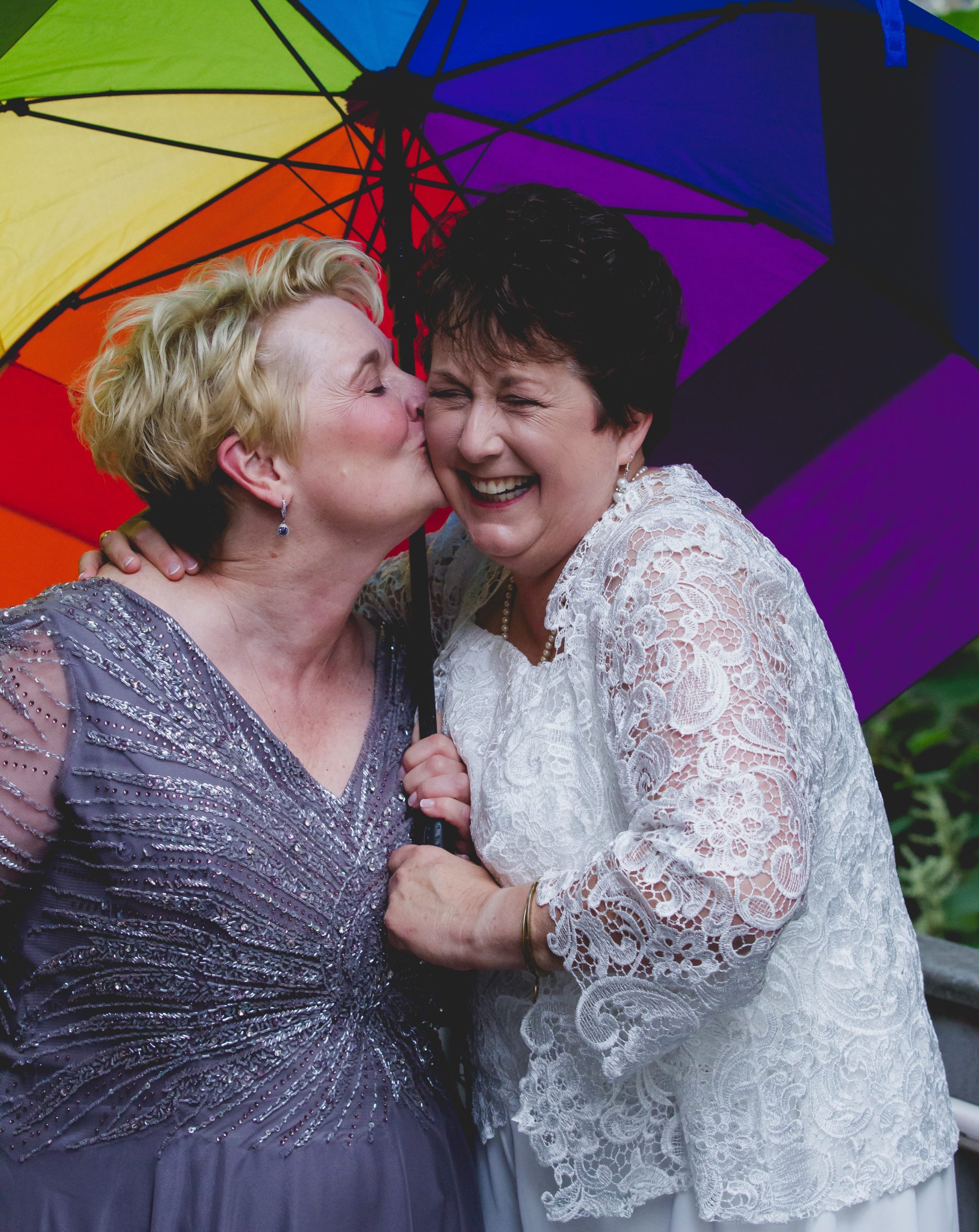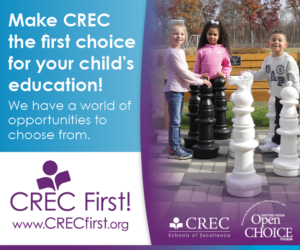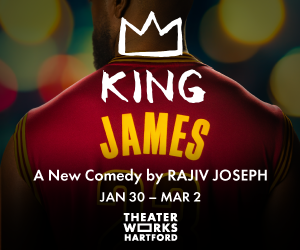LGBTQ online dating survival stories
By Dawn Ennis
In our modern divided society, there are two things that unite all of us: our need for a human connection beyond ourselves, and our frustration with the result. Nowhere is that truer than in the interweb dedicated to finding love, pursuing passion and, well, hooking up.
As one gay man tweeted in the hashtag #gayonlinedating: “I feel like gay online dating is sending messages that will not be responded to, and not responding to messages you get.”
Given the way that internet use has exploded in the two decades since 2000, is it any wonder that online dating within the LGBTQ community has both created new opportunities to connect and left us feeling more isolated than ever? And it’s not always a lack of responses that are a problem; catfishing is rampant across the online dating universe.
But for the millions of those willing to take the risk, many permutations are possible: virtual relationships that can range from long-distance romances to finding matches within walking distance; one-on-one interactions for those seeking to couple up, be part of a “throuple” and more; plus, there’s everything from kinks to platonic friendships, in which people share mutual interests and a thirst for companionship without the sex.
We’ve collected a few stories from LGBTQ folks in their 30s, 40s, 50s, and 60s, willing to share their happiness and their heartbreak. Our first couple channeled their interest into creating a community.
They developed an online dating app right here in Connecticut. It’s called #open (pronounced hashtag open), a tiny competitor compared to the big guys like Grindr, Tinder, HER, SCRUFF, TSDates, as well as those appealing to mostly cishet monogamy-seeking couples like eHarmony, OkCupid, Plenty of Fish, Match and Bumble. #open is a relative newcomer in the field where LGBTQutie, Scissr and Chappy have attracted members of the LGBTQ community.
The difference is #open’s dedication to being an inclusive, sex-positive community, 40,000 strong, that welcomes those who don’t want to be limited by a gender binary, a given orientation or relationship style. The founders advertise it as an app for those seeking “people who share your passion.”
Amanda and David
“We met on an app,” says internet entrepreneur David Epstein, one he described as “set to a little bit of a different tune” than the popular dating apps. Amanda Wilson, with a background in game theory and human behavior, says her first reason for swiping right on Epstein’s profile in March 2015 came down to what she saw.
“He was exceptionally handsome to me from the very beginning, on the very first picture, and I don’t know necessarily what specifically made me swipe right. But I do know that pretty soon after actually chatting and talking with him, when it came time to meet, he made me feel exceptionally comfortable,” she says, detailing Epstein’s thoroughness in sharing details about himself. “He basically let me know that I was going to get through this encounter, this meeting, alive.”
The middle-aged couple, who identify as bisexual, co-founded the #open app, launching it on the Apple App Store in December 2018 and in the spring of 2019 on Google’s Play Store. They run it with a small staff out of an office with an incredible “Truman Show”-esque view overlooking West Hartford Center. Their motivation was their own interest in connecting with others in a way that traditional dating apps didn’t offer.
“Much of it was really driven by our own observations about our own sexuality,” Epstein says over lunch with Wilson. “We saw broad societal acceptance of female bisexuality, but almost none of male bisexuality, and we wanted to know why that was and to be able to study how it changes.”
“We don’t really have a lot of research into human sexuality,” adds Wilson.
For example, a study of 12,000 students, published in March 2019 in the peer-reviewed Journal of Sex Research, relied entirely on self-reporting. Researchers found that the students experienced substantial changes in their sexual attractions, partners, and sexual identity, beginning in late adolescence to their early 20s, and from that point, into their late 20s.
Nine out of 10 men taking part in that study reported they were straight; one in six women identified as bisexual.
Contrast that with #open, where 41% of users are straight, fewer than 20% call themselves bi, and more than 11% fall into the “other” category which lumps together everything from “gay” to “skoliosexual,” a term for those attracted to intersex/DSD, non-binary and genderqueer individuals.
As for gender identity, which is different from sexual orientation, almost 9% of the #open community identifies outside the binary.
“We think diversity is better represented when people are free to self-identify,” Epstein says.
When #open users create a profile, they can choose their gender and sexual preference from a very diverse list, or create their own and describe themselves in terms of their interests. In addition, users choose hashtags that express those interests and even define where their boundaries are.
“A lot of the other dating apps are trying to push people into two binary boxes that don’t fit the actual way users inside of the app want to identify,” Wilson adds. “So, users are having to come up with all of these different kinds of workarounds, which is frustrating for them, and frustrating for the other users of the app.”
A spokesperson for OkCupid wasn’t taking any trash talking from the #open folks.
“We have 13 orientation options and 22 gender options available for our members to choose from,” counters Michael Kaye, global communications manager at OkCupid, in an email to Connecticut VOICE. “Members with LGBTQIA+ profiles can choose pronouns to display on their profile. People can choose between he/him, she/her, they/them, or they can write in their own. We welcome everyone and support all types of relationships, including non-monogamous ones, on OkCupid.”
The catch, as Epstein and Wilson point out, is that traditional dating apps like OkCupid do not allow couple or joint profiles; #open does, giving its users options to search with their partners and on their own, if they wish to be non-monogamous.
“You can have a solo profile, or you can partner up with someone inside of the app and have a partner profile,” explains Wilson. “So, you know, for David and I, I have my solo profile, David has his solo profile, and then we have our shared partner profile. We feel like we’ve got the platform that really allows our users to be as authentic as they want to be and really speak their voice no matter what that is, or their truth, an app that can be as fluid as they are,” she says.
“Not only do we offer partner profiles, but 37% of the profiles on #open are partnered profiles, and 60% of those are “Confirmed Partners.” Partnered profiles can be accessed from two different devices to ensure more than one person is participating. This is more open, honest, and ethical – and helps reduce instances of catfishing on dating apps.”
Laurie and Sara
For those LGBTQ singles looking for “the one,” it can be frustrating, says Laurie Scott-Smith of Bridgeport. She was just about to give up on Match.com, founded back when the word “app” meant “appetizer,” when she and her wife found each other on the site.
“We were two older lesbians, living single lives 60 miles apart, wishing we weren’t,” Laurie wrote in an email to us. “I was two years into launching my travel business in Old Saybrook and ready to search for the last love of my life. Match.com wasn’t a very successful source for me, as I really don’t fit into boxes that Match suggests. I was a young-at-heart 61, an artsy, ethereal, out of-the-box, woman-loving woman: I love to fish and hate to cook. I’m a social justice geek with a passion for travel. I had just about given up.”
Laurie went on a few dates, about to throw in the towel, when she met Sara, a Fairfield County minister.
“She was a tomboy who wore makeup and lipstick, but looked hot in a baseball cap,” she wrote. “She was from the South, where I’d spent 20 years. Our values were in sync; she was lovely and smart and spiritual.
“Our texts were constant. Within a few days, we agreed we had to meet. We met halfway between Old Saybrook and Fairfield for one date, then another, and another, each time closing the restaurant. We knew this was something extraordinary. Within two weeks, we were making the kind of plans you usually don’t make with someone you’ve just met,” recalls Laurie.
A group trip to Morocco sealed the deal in January 2019, Laurie wrote. “On the third day, I proposed to her in the midst of 3,000-year-old Roman ruins. Two days later, she proposed to me on a dune of the Sahara at sunset.”
They wed the following September.
“Did I ever think that I would find my one-and-only on Match.com? Never. But where else would you find a middle-aged minister who wears a collar every day, loves to cook, with a sparkle in her eye? And where would she find an art-loving, out-there, mother of twins who twirls when she talks? Simply … a Match.”
But as the ancient proverb made famous by the rock group Poison goes, “every rose has its thorn.” Some cautionary tales of online dating filled our inbox.
The Reverend Daniel Rodriguez Schlorff
“As a pansexual cis male, I find it hard to get dates with straight women,” wrote Schlorff, a 39-year-old chaplain from Wallingford. “As soon as they hear I have had and enjoyed intercourse with other men, they immediately ghost me.”
He continues, “Another sad but true fact is that many in the LGBTQ+ communities project all sorts of negativity onto queer people of faith, calling us self-loathing, in denial, assuming we approve of clergy abuses, and that we are generally living in the dark ages. It’s a reactivity to religious trauma rather than an experience of the person whose profile they are viewing.”
Deja Nicole Greenlaw
Greenlaw, 68, is a columnist, retired and a straight transgender woman from Enfield who’s been living as her authentic self for almost 13 years. She met several cisgender men through TSDating, all of whom knew she were trans before they met in person.
“On my first date with a man, it felt great, but very different sitting on the other side of the car, especially when the kiss came. It was sweet, but now I was a woman with a man instead of a man with a woman!
“Another time, a different guy kept looking around when we were sitting in a booth at a Panera. He was afraid that he would see someone he knows and here he was with a 6’3” trans girl.”
Greenlaw also gave Facebook Dating a go but chose not to disclose her transgender status until meeting one cisgender man, in person and in public, in September 2019.
“He kept on cocking his head as he looked at me throughout the date. He didn’t realize that I was a trans woman. We talked about the ‘60s, music, drug use, etc., and things were going okay. After about an hour I finally told him I was a T-girl [transgender]. Then he asked me if I had ‘the operation,’ and I told him that I hadn’t, and that changed his interest in me. He then treated me like I was a guy friend and wasn’t interested in me. I decided, at that point, to end the date. He did walk me to my car, though, and when we got there, he asked me if I could score any acid. Lol, what a date!”
Josephine Altzman
Altzman, 50, is from Teaneck, N.J. and a transgender woman who came out four years ago. She’s an Orthodox Jew who described herself on National Coming Out Day as a “proud gay woman.” In late 2019, she told her Facebook friends she had started a “a new job and career in a new company and begun yet another personal relationship.”
Her online dating experience was discouraging. Altzman recalls having 16 people in a row turn her down during online or in-person encounters, in which her prospective paramour would say something along the lines of, ‘You’re pretty and smart and I like you, but I can’t date someone who’s trans.’”
“Number 17,” she said, referring to her new girlfriend, “remains to be seen.” Weeks later, she noted, “this last one seems to be a keeper, I’m happy to say.”
Melody Maia Monet
The 49-year-old Orlando, Fla.-based YouTube personality, writer, singer, and photographer told us by phone she has had very little success with online dating since coming out as a transgender lesbian a decade ago. She says one time she inadvertently set her account to “interested in men,” and almost immediately, “I was flooded with contacts, like 45 in 24 hours.” A year ago, a cisgender lesbian fan of Monet’s connected with her using the HER app, but their relationship fizzled.
“What I have found is that, at my age in particular, I’m not getting nearly as much interest as I used to, and when I do find someone, the conversations don’t last very long, or they’re catfish.”
“Catfish,” for those unfamiliar, are internet trolls who connect with lonely hearts with the goal of reaping a financial windfall, either through cash sent online or by obtaining enough personal information to steal an individual’s identity and ruin their life forever. Others do it just for emotional reasons, to get attention and feel attractive, Monet said.
“One particularly bad week, I got catfished twice,” Monet recalls.
Here, she shares some of the catfish warning signs she’s learned to spot:
Unbelievably gorgeous profile photos, often stolen from unwitting social media accounts.
An almost immediate response to a connection: “Most women won’t reach out right away, so if you get a message within a minute, it’s almost always a catfish.”
Changing locations: A lot of times, the distance between you and the person contacting you will suddenly change, from a few miles to thousands of miles, given that some of these catfish are based overseas. Apps like HER allow users to change their locations for privacy and to gauge if they might find a date in a city they plan to travel to. “So that’s a feature, not a bug.”
Unusual questions: “A catfish will ask questions that would not be the first thing you’d ask someone you just met online: How long have you had this account? What are you looking for from this app? Also, they’ll be instantly overly enthusiastic with praise, calling you beautiful, darling, etc.”
Members of the military: “A sure catfish sign is if they say they’re in the military, because they’re almost always not.” The founder of the HER app once told Monet that a good friend of hers, who actually served in the military, wanted to mention that in her profile. She advised against the idea, saying, “They’ll think you’re a catfish!”







More Stories
Coming Out Later In Life
Diving in with Greg Louganis
Pilobolus is Changing Shape with LGBTQ+ Dancers